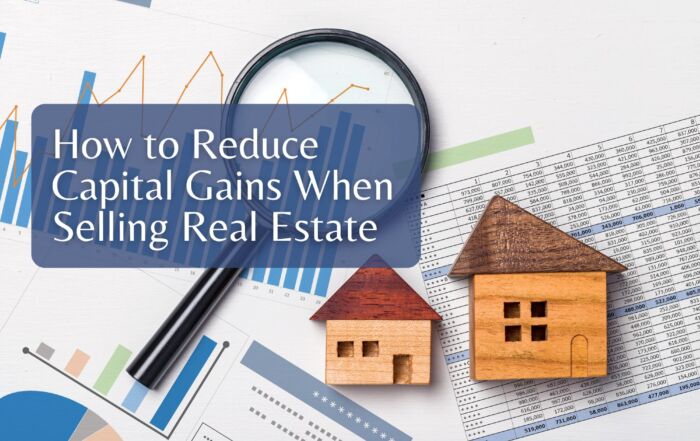
How to Find the Right CPA for You
On today’s episode of the podcast, the team along with Jordan Sute, CPA go over how to find the right CPA for you. When hiring a CPA to prepare your tax returns, it is important to determine if he or she is equipped to service your needs. Many people think a CPA understands all aspects of the IRS code. This is an unrealistic assumption. There are certain questions you should ask a CPA when interviewing them to make sure they are the best fit for you. If you want to learn more about finding the right CPA and other useful tax tips, click here to download our FREE guide on “10 Important Things to Know About Taxes.“
Listen on Apple Podcasts or watch on YouTube:
SUMMARY:
Hiring a certified public accountant (CPA) and creating a relationship with them is important because it can be a lifelong relationship. It is not a commodity-based relationship. You cannot trade them out every year and expect to get the same result. CPAs have specializations, business models, and are trying to attract a certain type of clientele. It is important to ask about the CPA’s background, what kind of work they do, and what kind of clients they work with. For instance, some CPAs do RMD credits (for manufacturing and design). Until the 2017 taxes, airline pilots had a lot of tax credits for per diem. Finding a CPA that understands your situation is important. Trusting your CPA is one of the most important factors in choosing one.
Contacting Your CPA
If you are just doing your W2, you probably don’t need to contact your CPA very often. The answer should be unlimited within reason. You want someone who can be flexible with you and that can be available for you. Setting expectations with your CPA about expectations and billing at the beginning of the relationship is very healthy. People usually set hourly rates and a minimum. This helps people find the right fit because clients are able to gauge how many returns they really need done each year and whether the firm can serve them well.
Are they Proactive?
In financial advising and accounting, the great ones are proactive. They should be aware of how a tax-law change would affect clients and who to contact. Reaching out via phone call, newsletter, or an email – you should expect to hear from them. Ask them how they are staying up to date and educated in their field.
How to Identify a CPA vs a Non-CPA
There are “tax-preparers” and then there are CPAs. Anyone can go out and get a P10 to prepare a tax return, but not everyone can speak to the IRS on your behalf. You want to know that if your tax return is ever questioned, they can go with you to the IRS to back you up. Verifying their credentials and looking at their previous work is a must in finding the right CPA.
Can they review a prior return?
According to Jordan, this is very common. Clients will bring in prior returns with questions of its accuracy, wanting to compare previous CPAs, and wanting to compare their previous return.
TIMESTAMPS:
3:10 Tips for Hiring a CPA
9:00 Contacting Your CPA
11:28 Are they proactive?
13:56 How to Identify a CPA vs a Non-CPA
16:59 Can they review a prior return?
LINKS:
Learn more about Casey Smith and connect with him on Twitter.
Learn more about Brad Lyons.
Learn more about Matthews Barnett.
CONNECT:
Twitter, Instagram, Facebook, LinkedIn, and YouTube.
Learn more about the Wiser Wealth Management Roundtable podcast and access previous episodes.
Share This Story, Choose Your Platform!
Wiser Wealth Management, Inc (“Wiser Wealth”) is a registered investment adviser with the U.S. Securities and Exchange Commission (SEC). As a registered investment adviser, Wiser Wealth and its employees are subject to various rules, filings, and requirements. You can visit the SEC’s website here to obtain further information on our firm or investment adviser’s registration.
Wiser Wealth’s website provides general information regarding our business along with access to additional investment related information, various financial calculators, and external / third party links. Material presented on this website is believed to be from reliable sources and is meant for informational purposes only. Wiser Wealth does not endorse or accept responsibility for the content of any third-party website and is not affiliated with any third-party website or social media page. Wiser Wealth does not expressly or implicitly adopt or endorse any of the expressions, opinions or content posted by third party websites or on social media pages. While Wiser Wealth uses reasonable efforts to obtain information from sources it believes to be reliable, we make no representation that the information or opinions contained in our publications are accurate, reliable, or complete.
To the extent that you utilize any financial calculators or links in our website, you acknowledge and understand that the information provided to you should not be construed as personal investment advice from Wiser Wealth or any of its investment professionals. Advice provided by Wiser Wealth is given only within the context of our contractual agreement with the client. Wiser Wealth does not offer legal, accounting or tax advice. Consult your own attorney, accountant, and other professionals for these services.





